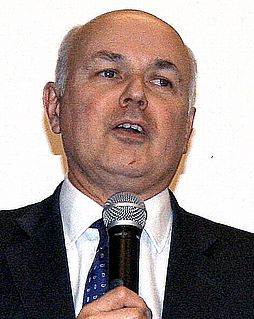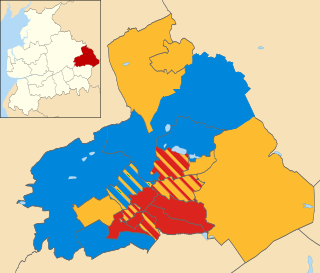
Local elections took place in various parts of the United Kingdom on 1 May 2003, the same day as the Scottish Parliamentary and the Welsh Assembly elections. There were local elections for all councils in Scotland and in most of England. There were no elections in Wales, Northern Ireland or London.

Elections to Sheffield City Council were held on 10 June 2004. The whole council was up for election with boundary changes having taken place since the last election in 2003, reducing the number of seats by 3. This election was the first all-postal vote election held, dramatically improving overall turnout by 14.4% on the previous election to 43.9%. The Labour Party kept its overall majority and continued to run the council, albeit on a much slimmer majority. Previous to the boundary changes, sitting Hillsborough councillor Peter MacLoughlin defected from the Liberal Democrats to an Independent, choosing not to contest this election.

The 2004 St Helens Metropolitan Borough Council election took place on 10 June 2004 to elect members of St Helens Metropolitan Borough Council in Merseyside, England. The whole council was up for election with boundary changes since the last election in 2003 reducing the number of seats by six. The Labour party lost overall control of the council to no overall control.

The 2007 UK local government elections were held on 3 May 2007. These elections took place in most of England and all of Scotland. There were no local government elections in Wales though the Welsh Assembly had a general election on the same day. There were no local government elections in Northern Ireland. Just over half of English councils and almost all the Scottish councils began the counts on Friday, rather than Thursday night, because of more complex arrangements regarding postal votes.

This article shows the results of local elections for Preston City Council, in Lancashire held on 10 June 2004

The 2003 Harlow District Council election took place on 1 May 2003 to elect members of Harlow District Council in Essex, England. One third of the council was up for election and the council stayed under no overall control.
The 2003 Gateshead Council election was held on 1 May 2003 to elect members of Gateshead Council in Tyne and Wear, England. One third of the council was up for election and the Labour party kept overall control of the council.
The 2003 Gateshead Council election was held on 10 June 2004 to elect members of Gateshead Council in Tyne and Wear, England. The whole council was up for election with boundary changes since the last election in 2003. The Labour party stayed in overall control of the council.

The 2004 Hull City Council election took place on 10 June 2004 to elect members of Hull City Council in England. One third of the council was up for election and the council stayed under no overall control.
The 2002 Wakefield Metropolitan District Council election took place on 2 May 2002 to elect members of Wakefield Metropolitan District Council in West Yorkshire, England. One third of the council was up for election and the Labour party kept overall control of the council.
The 2003 Worcester City Council election took place on 1 May 2003 to elect members of Worcester District Council in Worcestershire, England. One third of the council was up for election and the Conservative party gained overall control of the council from no overall control.
The 2003 South Tyneside Metropolitan Borough Council election took place on 1 May 2003 to elect members of South Tyneside Metropolitan Borough Council in Tyne and Wear, England. One third of the council was up for election and the Labour party kept overall control of the council.
The 2003 Welwyn Hatfield District Council election took place on 1 May 2003 to elect members of Welwyn Hatfield District Council in Hertfordshire, England. One third of the council was up for election and the Conservative party stayed in overall control of the council.
The 2002 Sunderland Council election took place on 2 May 2002 to elect members of Sunderland Metropolitan Borough Council in Tyne and Wear, England. One third of the council was up for election and the Labour party stayed in overall control of the council.
The 2003 Sunderland Council election took place on 1 May 2003 to elect members of Sunderland Metropolitan Borough Council in Tyne and Wear, England. One third of the council was up for election and the Labour party stayed in overall control of the council.

The 2004 Sunderland City Council election took place on 10 June 2004 to elect members of Sunderland City Council Council in Tyne and Wear, England. The whole council was up for election following boundary changes since the last election in 2003. The Labour party stayed in overall control of the council.

The 2002 Pendle Borough Council election took place on 2 May 2002 to elect members of Pendle Borough Council in Lancashire, England. The whole council was up for election with boundary changes since the last election in 2000 reducing the number of seats by 2. The council stayed under no overall control.
The 2000 Milton Keynes Council election took place on 4 May 2000 to elect members of Milton Keynes Unitary Council in Buckinghamshire, England. One third of the council was up for election and the council stayed under no overall control.

The 2003 Redcar and Cleveland Borough Council election took place on 1 May 2003 to elect members of Redcar and Cleveland Unitary Council in England. The whole council was up for election with boundary changes since the last election in 1999. The Labour party lost overall control of the council to no overall control.
The 2002 Crawley Borough Council election took place on 2 May 2002 to elect members of Crawley Borough Council in West Sussex, England. One third of the council was up for election and the Labour party stayed in overall control of the council.












